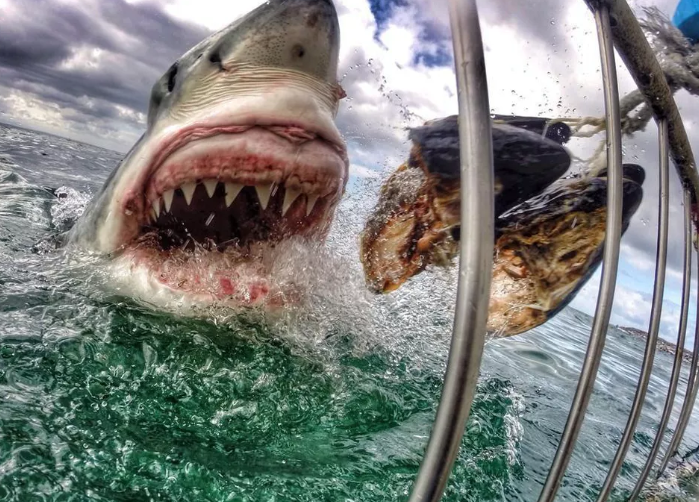
Fossil enthusiast Philip Mullaly was walking along the beach in Victoria Australia when he saw it: a glint in a boulder with quarter of a tooth exposed.
“I was immediately excited, it was just perfect and I knew it was an important find that needed to be shared with people,” Mullaly explained.
He had found a fossilised shark tooth. And not a regular shark tooth, a mega-shark tooth, twice the size of a Great White tooth at 7 centimetres (2.7 inches) long. Upon closer inspection there was a whole set of these gigantic mega-shark teeth.
The teeth belonged to the Great Jagged Narrow-Toothed Shark (Carcharocles angustidens), a type of shark that roamed oceans near Australia 25 million years ago.
Much like its teeth, the Great Jagged Narrow-Toothed Shark grew to twice the size of a Great White Shark, potentially nine metres long.
The discovery of a full set of fossilised shark teeth like this is a find of international significance.
“[T]hey represent one of just three associated groupings of Carcharocles angustidens teeth in the world, and the very first set to ever be discovered in Australia,” said Erich Fitzgerald, senior curator of vertebrate palaeontology at Museums Victoria. The teeth are now housed in that museum.
The Great Jagged Narrow-Toothed Shark lived during the Oligocene ephoch and was a top predator. They preyed upon and ate small whales.
They ate whales.
Whales.
The teeth are on display at Melbourne Museum as part of National Science Week starting from Thursday 9 August.

